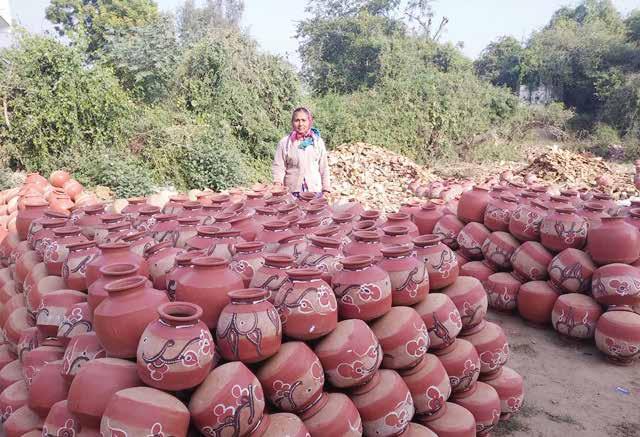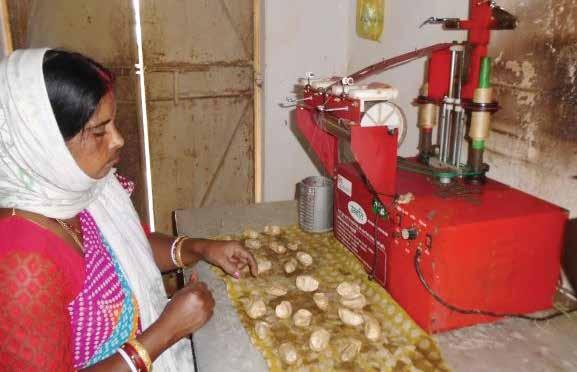24
Study the Feasibility and Potential of Solar Applications in Micro, Small and Medium Enterprises in Rural India
4.1.2 Sidlaghatta Silk Twisting Cluster Cluster profile Karnataka is one of the major states for mulberry silk production in India. Sidlaghatta taluk in Chikkaballapura district is a prominent town and famous for trading of huge quantity of silk cocoons and twisted silk to other Indian cities. There are around 1200 home-based silk twisting units in Sidlaghtta cluster. The twisted yarn is in great demand among silk thread buyers, mostly from Kanchi, Harni, Dharmavaram, and Bengaluru. These buyers can also be silk saree and other silk apparel-making agencies. The twisting units normally operate for 10–12 hour in a day and the production continues throughout the year in all the seasons. The small units (120–
200 spindle) represent 80% of the total twisting units in the cluster, while the balance 20% are large units (500 spindle and beyond). These big units were found highly energy intensive, thus were not covered under the study. The average monthly revenue of small unit varies from INR 45,000 to INR 75,000 based on their volume of productions (100–150 kg of silk yarn).
Production process Twisting is a process of preparing raw silk with desired strength and thickness for textile weaving in the loom. Normally, raw silk is extracted from the cocoons and then served into the reeling basin. The reeled silks are called skeins. These skeins are then wound onto bobbins through a winding machine. The wound yarn is then ‘doubled’, wherein threads from two separate bobbins simultaneously run onto a single bobbin, which is then taken for twisting. The twisted threads are
FIGURE 4: Silk thread twisting process






